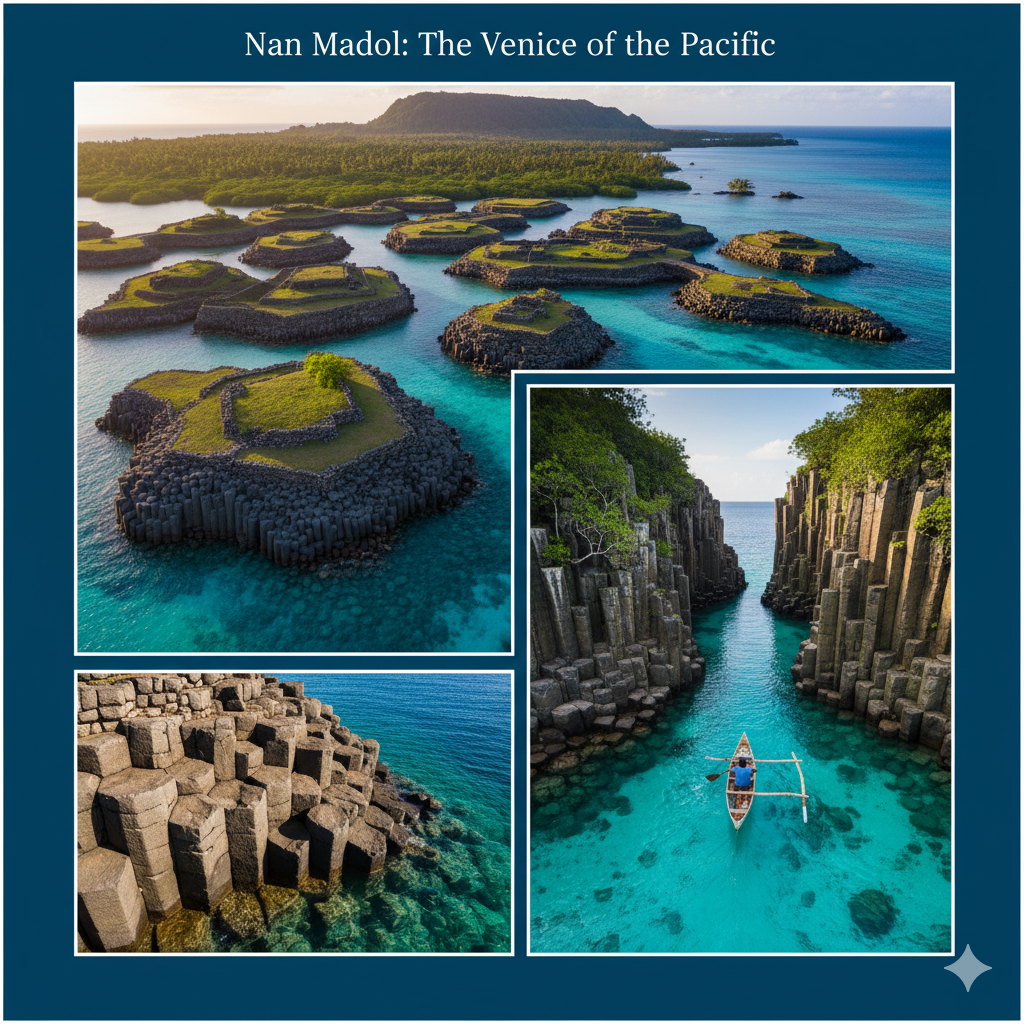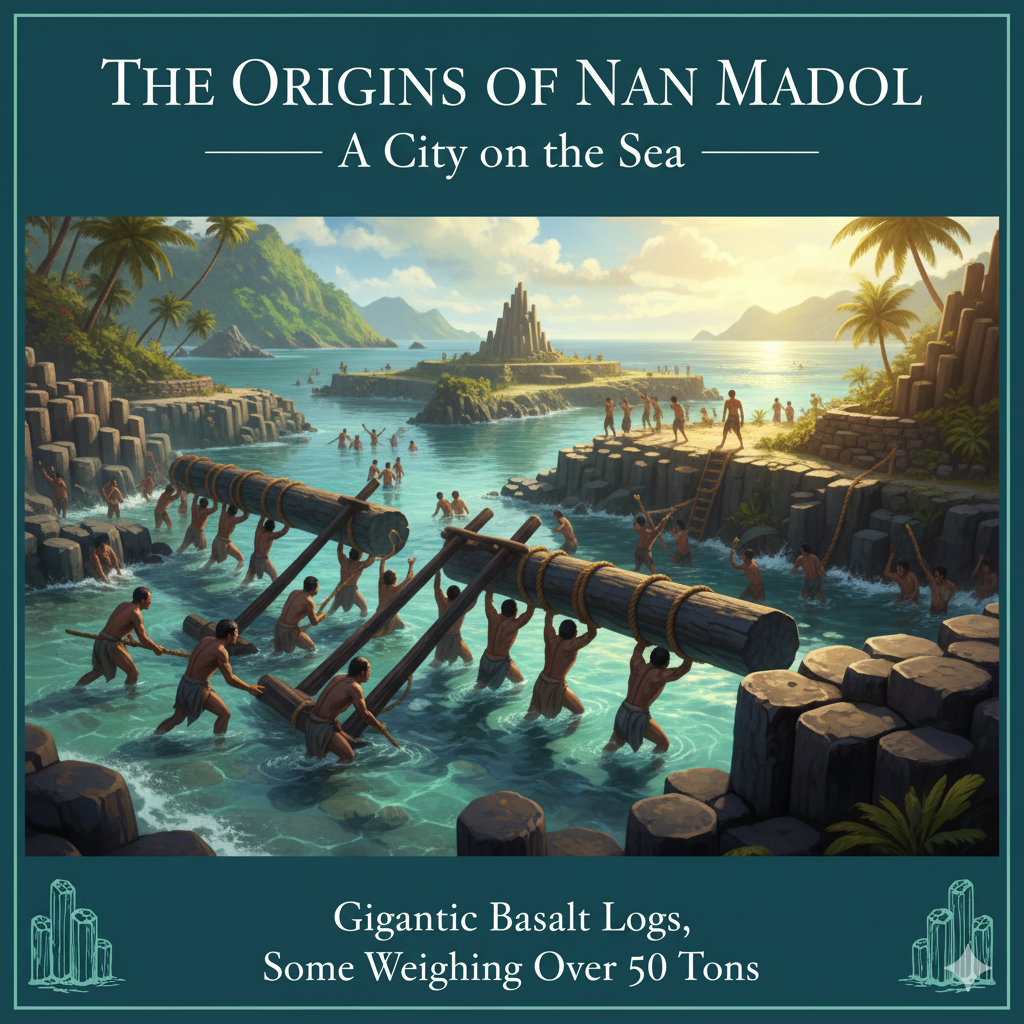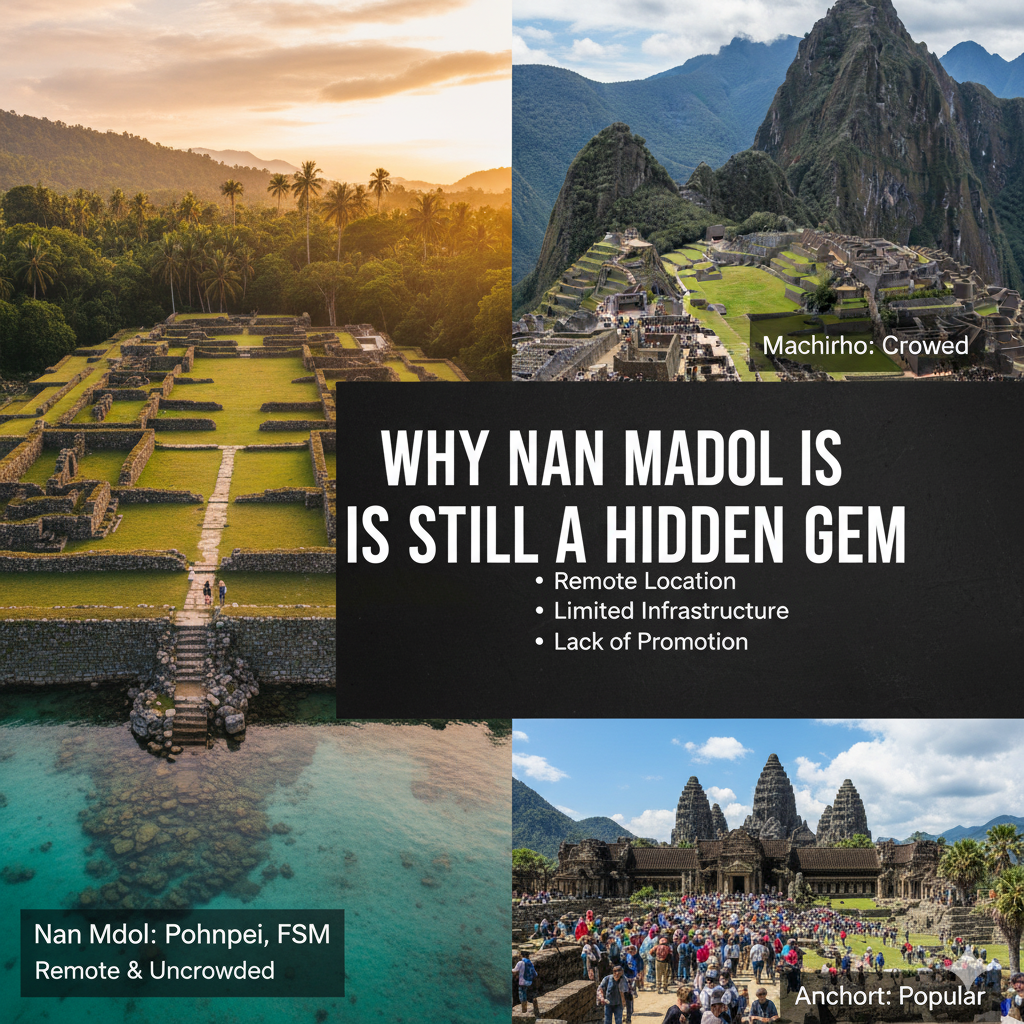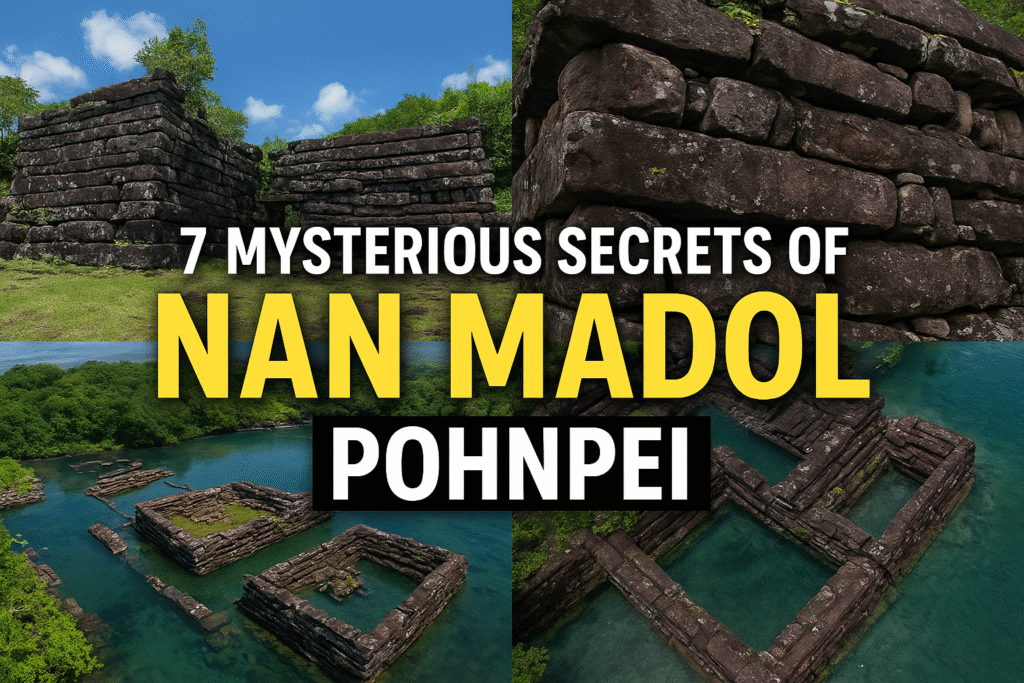Introduction: Nan Madol Pohnpei — The Venice of the Pacific
Nan Madol Pohnpei is one of the world’s most astonishing archaeological wonders — a city built on water, constructed from massive basalt stones, and surrounded by myths that rival Machu Picchu or Angkor Wat. Yet, unlike those famous sites, Nan Madol remains largely unknown, hidden away in the Federated States of Micronesia.
Often called the “Venice of the Pacific”, Nan Madol consists of over 90 man-made islets linked by tidal canals. Built between the 8th and 17th centuries, it was once the ceremonial and political seat of the Saudeleur dynasty. Today, it stands as a hauntingly beautiful ruin, blending ancient engineering with untamed tropical beauty.
This guide uncovers the mysteries, legends, and travel tips surrounding Nan Madol — making it the ultimate resource for curious travelers seeking hidden gems far off the beaten path.
1. The Origins of Nan Madol — A City on the Sea
The most striking aspect of Nan Madol Pohnpei is its construction. Gigantic basalt logs, some weighing over 50 tons, were stacked like giant pillars to form walls, temples, and palaces.

What makes it mysterious:
- No clear record explains how the islanders transported such enormous stones without cranes, wheels, or advanced technology.
- Oral traditions claim that magic or spiritual powers helped lift the stones across the sea.
- Historians compare Nan Madol to Easter Island and Stonehenge, calling it one of the world’s great unsolved mysteries.

Even UNESCO describes Nan Madol as a masterpiece of human creative genius, securing its place on the World Heritage List.
2. The Legends and Ghost Stories of Nan Madol
Local myths say Nan Madol was built by twin sorcerers, Olosohpa and Olosihpa, who flew the stones into place with the help of dragons. Some villagers still believe the site is cursed — and entering at night may bring bad luck.

Common ghostly tales include:
- Mysterious lights seen flickering above the ruins.
- Strange sounds of chanting and drums echoing across the canals.
- Stories of visitors feeling a heavy presence or sudden chills.
Much like the Resia Lake Bell Tower in Italy, Nan Madol blends history with the supernatural, giving it an aura of timeless mystery.
3. Exploring the Ruins — What You’ll See at Nan Madol
Visitors can explore different parts of the site, each with unique history:
- Pahn Kadira (The Royal Mortuary): Where ancient rulers were buried.
- Pahnwi: Believed to be the residence of priests.
- Peinering: An ancient temple platform.
- Canal Network: Known as tidal canals, these waterways connected the entire city.

The aerial view is breathtaking — symmetrical stone walls rise from turquoise lagoons, surrounded by dense mangroves.
4. Why Nan Madol Is Still a Hidden Gem
Unlike Machu Picchu or Angkor Wat, Nan Madol doesn’t attract massive crowds. The reasons:
- Its remote location — Pohnpei is far from major tourist routes.
- Limited infrastructure — only a handful of eco-lodges and homestays serve the island.
- Lack of promotion — most people have never even heard of it.

For adventurous travelers, this means one thing: authenticity. Exploring Nan Madol feels like stepping back in time, with ruins untouched by mass tourism.
5. How to Visit Nan Madol Pohnpei
- Location: Southeast coast of Pohnpei Island, Federated States of Micronesia.
- Best time to visit: Dry season (December to April).
- Getting there: Flights from Guam or Honolulu connect to Pohnpei. From Kolonia (the capital), it’s a 1-hour drive followed by a short boat or hike.
- Entrance fee: Small fee to the local landowners who maintain access paths.
- Travel tip: Wear reef shoes — you’ll wade through shallow water and mangroves.
6. Nearby Attractions in Pohnpei
If you’re visiting Nan Madol, extend your trip to explore other Pohnpei highlights:
- Kepirohi Waterfall — one of Micronesia’s most stunning cascades.
- Sokehs Rock — a giant volcanic plug offering panoramic views.
- Pohnpei Mangrove Forests — rich in birdlife and perfect for eco-tours.
- Traditional sakau (kava) ceremonies — a unique cultural experience.

7. Why Nan Madol Should Be on Your Travel List
Nan Madol is more than an archaeological site — it’s a story of human resilience, mystery, and legacy. Few destinations combine:
- Architectural wonder
- Untouched tropical beauty
- Legends of sorcery and ghosts
- The feeling of being truly off-the-beaten-path
For cultural travelers, photographers, and history lovers, it’s a once-in-a-lifetime experience.
FAQs About Nan Madol Pohnpei
Q1: Is Nan Madol safe to visit?
Yes, it’s safe, but paths can be slippery. Go with a local guide.
Q2: How long should I spend there?
At least half a day. Many travelers combine it with a full-day tour of Pohnpei’s east coast.
Q3: Is Nan Madol really haunted?
Legends say yes — but most visitors simply find it atmospheric and mysterious.
Q4: Is Nan Madol similar to Machu Picchu?
Both are ancient cities with mysterious origins, but Nan Madol is much less crowded and more aquatic in design.
Q5: Can I swim or kayak near Nan Madol?
Yes! Some tours offer kayaking through the canals — an unforgettable experience.




Pingback: Fishermen’s Dawn Rituals 7 Inspiring Sea Traditions
Pingback: Best Travel Destinations Reopening in 2025–2026: Where to Go Now